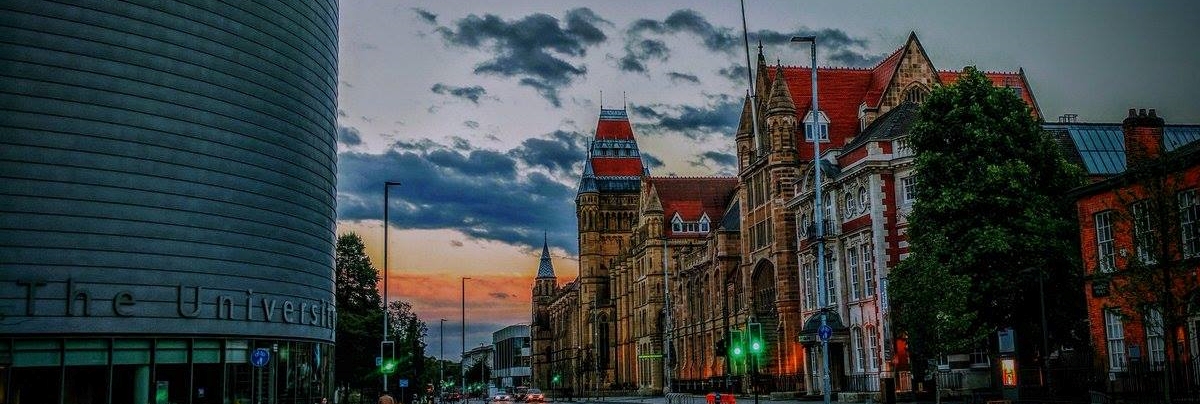
Causal Histories: The Role of Genealogical inquiry in Moral, Social and Political Philosophy.
Francesco Testini (Jagiellonian University Krakow) and Victor Braga Weber (University College London)
Arthur Lewis Building: Room 2.016
In recent years, the term ‘genealogy’ has been gaining currency in moral, social and political philosophy, with several authors arguing that reconstructing the causal histories of certain beliefs, concepts or practices can contribute to normative and critical inquiries concerning them. Whether, how, and which genealogical methods can contribute to this end, however, is still a matter of debate.
The issue cuts across traditional methodological borders. Authors working in the critical theory tradition generally agree that genealogical accounts can reveal something puzzling about their targets – although they disagree both on what these puzzling features are (cf. Haslanger 2012, and Srinivasan 2019), and on whether this revelation is an integral or only a propaedeutic component of critique (cf. Koopman 2013, and Lorenzini 2020). On the other hand, analytic philosophers tended to look at genealogies with an eye on gaining functional insights about their targets, but disagreements remain as to what these insights amount to and how they can be retrieved (cf. Smyth 2020 and Queloz 2021).
At the applicatory level, the debate is gaining just as much traction, with several authors using genealogies to elucidate, criticize or vindicate our conception of terrorism (Erlensbusch-Anderson 2018), adaptive preferences (Enoch 2020), liberalism (Testini 2021), property (Rossi and Argenton 2021), forward-looking responsibility (Alfano 2021), reasonableness (Lawlor 2022), and many others.
This variety shows that genealogical approaches are set to become a key topic of discussion in practical philosophy, and such a discussion promise to be a lively one, bringing scholars with different intellectual backgrounds together and getting philosophy in closer contact with empirical disciplines such as evolutionary anthropology, sociology, and cultural history, to name but a few.
This panel aims at gathering scholars working on genealogical methods and their applications to specific topics in order to explore potential links and synergies among different lines of enquiry. Topics to be discussed will include (but are not limited to):
- What role(s) does historical information play within genealogies that seek to reach normative conclusions? Is there room for philosophical fictions in genealogies? If so, of what kind?
- What relevant ends can genealogy pursue within moral, social and political philosophy? Are any of these ends in tension with one another?
- How many varieties of genealogical investigation are to be found within the contemporary philosophical landscape? What (if anything) unites these forms of investigation, and where do the main differences between them lie?
- Are some genealogical endeavors self-defeating? How worried should genealogists be about committing the genetic fallacy?
- What different kinds of objects can be the target of genealogical enquiries?
- Do different objects of inquiry require different methodological approaches?
- Should we think of the methods and aims of genealogical inquiry within moral, social and philosophy as being consistent with normative theorization in such fields? If not, why?
|
|
|
|
11:00-12:30 |
Registration |
|
12:30-13:30 |
Lunch |
|
13:30-14:00 |
Welcome Speech |
|
14:00-16:00 |
N/A |
|
16:00-16:30 |
Tea and Coffee Break (optional) |
|
16:30-17:30 |
N/A |
|
17:45-19:00 |
Wine Reception |
|
19:30 |
Conference Dinner |
|
|
|
|
9:30-11:30 |
Session 2 Charlie Blunden & Benedict Lane, Vindicating Universalism: Moral Progress and Pragmatic Genealogy Jinglin Zhou, Grand Narrative Genealogy in Moral Philosophy A Critique (online) |
|
11:30-12:00 |
Tea and Coffee Break (optional) |
|
12:00-13:00 |
Session 2 (continued) Matthieu Queloz: Genealogical Debunking and Conceptual Needs |
|
13:00-14:00 |
Lunch |
|
14:00-16:00 |
Session 3 Paul Showler: A Pragmatic Genealogy of Moral Status Livia Von Samson: Genealogical explanations and social change |
|
16:00-16:30 |
Tea and Coffee Break (optional) |
|
16:30-17:30 |
Session 3 (continued) Benjamin De Mesel: Strawson, Skepticism and the Natural Roots of Responsibility |
|
|
|
|
9:30-11:30 |
Session 4 Jan Pieter Beetz: How to avoid turning into Kant at the Court of King Arthur? On Williams’ Realist Genealogy Janosch Prinz & Carlo Burelli: Why We Need Politics (online) |
|
11:30-12:00 |
Tea and Coffee Break (optional) |
|
12:00-13:00 |
Session 4 (continued) Alexander Prescott-Couch: Genealogy and Essence |
|
13:00-14:00 |
Lunch |
|
14:00-16:00 |
Session 5 Soo Jin (Suzie) Kim: When (if ever) Should We Interfere with Choices that Track Adaptive Preferences? Michael Thorner: Autonomy and Genealogy |
|
16:00-16:30 |
Tea and Coffee Break (optional) |
|
16:30-17:30 |
Session 5 (continued) David Owen: The Crisis in Critique (online) |
|
17:30 |
End of Conference |
